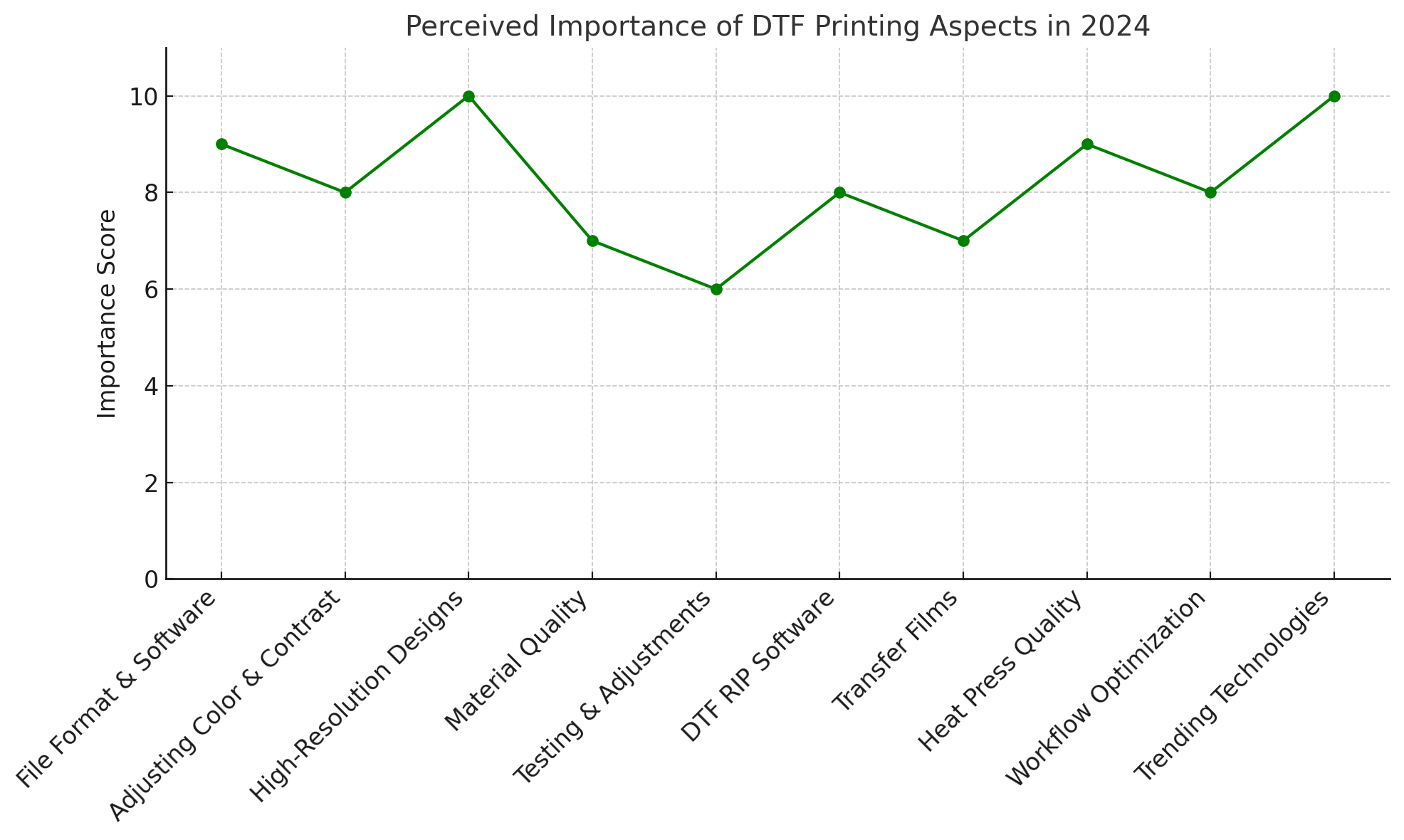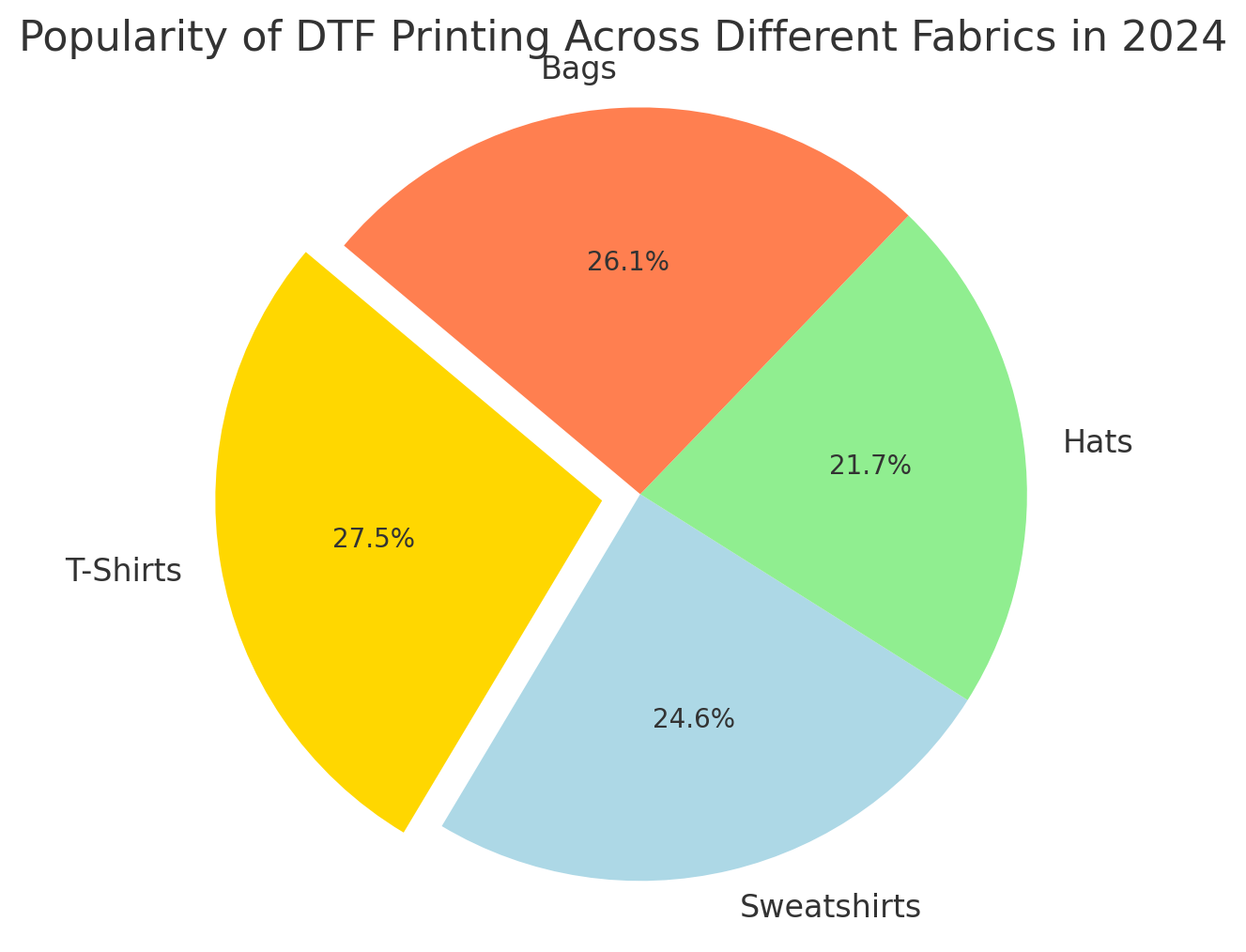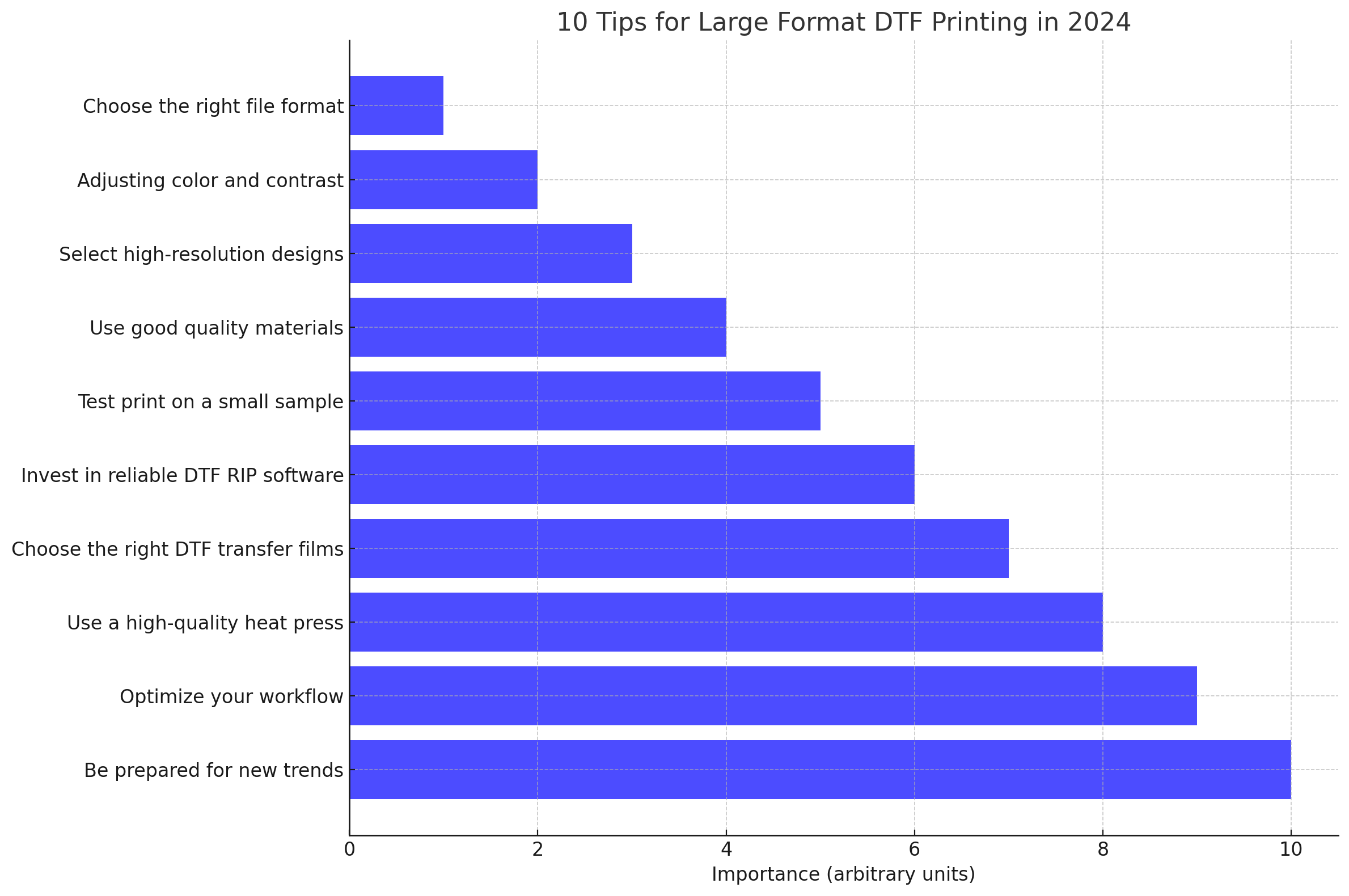DTF Printing Guide: Excel in Large Format Designs
Tips for Printing Large Format Designs Using DTF
Key Takeaways
| Aspect | Key Point |
|---|---|
| File Format | Use high-quality images with CorelDRAW or Adobe Illustrator. |
| Material Quality | Opt for premium glossy photo paper or polyester films. |
| Color and Contrast Adjustment | Essential for optimal DTF printing results. |
| Testing | Conduct test prints on small samples first. |
| Software Investment | Invest in reliable DTF RIP software for precise printing control. |
| Film Selection | Choose DTF transfer films with instant peel option and durability. |
| Heat Press | A high-quality heat press is crucial for excellent adhesion. |
| Workflow Optimization | Integrate automation tools like powder shakers and curing ovens. |
| Trend Preparedness | Stay ahead with eco-friendly solutions and advanced DTF printers. |
DTF (Direct to Film) printing has revolutionized how we approach printing on fabrics, marrying high-quality outcomes with unmatched flexibility. This is particularly true for large format designs, where the ability to produce vivid and intricate details makes DTF a preferred choice among industry professionals.
Understanding DTF Printing
The Basics of DTF Printing
DTF printing is a blend of technology and art that allows for the transfer of detailed designs onto a vast array of fabrics, ensuring longevity and vibrancy.
 DTF Printing: A Game-Changing Technique for Your T-Shirt Business
DTF Printing: A Game-Changing Technique for Your T-Shirt Business
Advantages of DTF Printing
The main draw of DTF printing lies in its versatility and efficiency—attributes that set it apart from traditional methods.
Preparing Your Design for DTF Printing
Choosing the Right File Format
Opting for the correct file format is pivotal. High-resolution images from CorelDRAW or Adobe Illustrator are ideal for DTF printing, ensuring every detail is captured.
Don't Make These Common DTF File MistakesImportance of Material Quality
Choosing premium materials such as glossy photo paper or top-notch polyester films greatly influences the final product's quality.

The Printing Process
Adjusting Color and Contrast
Adjustment of color and contrast is crucial for achieving the desired vibrancy and clarity in prints.
DTF Printing Essentials: A Closer LookHigh-Quality Heat Press Usage
The role of a high-quality heat press cannot be overstated, being integral to the adhesion process of DTF prints onto fabrics.
 DTF Transfer Methods and Techniques: Unleashing Your Inner DTF Superstar
DTF Transfer Methods and Techniques: Unleashing Your Inner DTF Superstar
Post-Printing Processes
Curing and Finishing Techniques
Discusses the importance of curing and finishing techniques in ensuring the durability and quality of the final DTF print.
Advanced Tips and Trends
Workflow Optimization
Streamlining your DTF printing workflow through integration of automation tools can significantly enhance productivity and efficiency. Staying abreast of emerging technologies and incorporating eco-friendly practices into DTF printing processes ensures a future-ready operation.
DTF Terminologies Cheat Sheet for Solopreneurs, Shop Owners, and Clothing Brand OwnersConclusion
Embracing the world of DTF printing opens up a realm of possibilities for large format designs, combining high-quality finishes with the flexibility to apply designs to diverse fabric types. As we move forward, staying updated with the latest trends and optimizing workflows will be key in harnessing the full potential of DTF printing technology.
DTF printing stands as a testament to innovation in the textile industry, allowing for unprecedented quality and creativity. By adhering to these tips and continuously exploring new advancements, businesses and creators alike can leverage the full capabilities of DTF printing, ensuring stunning results across a multitude of fabric types.
By following these guidelines and staying ahead of industry trends, we empower ourselves to lead in the dynamic and evolving world of fabric printing.
